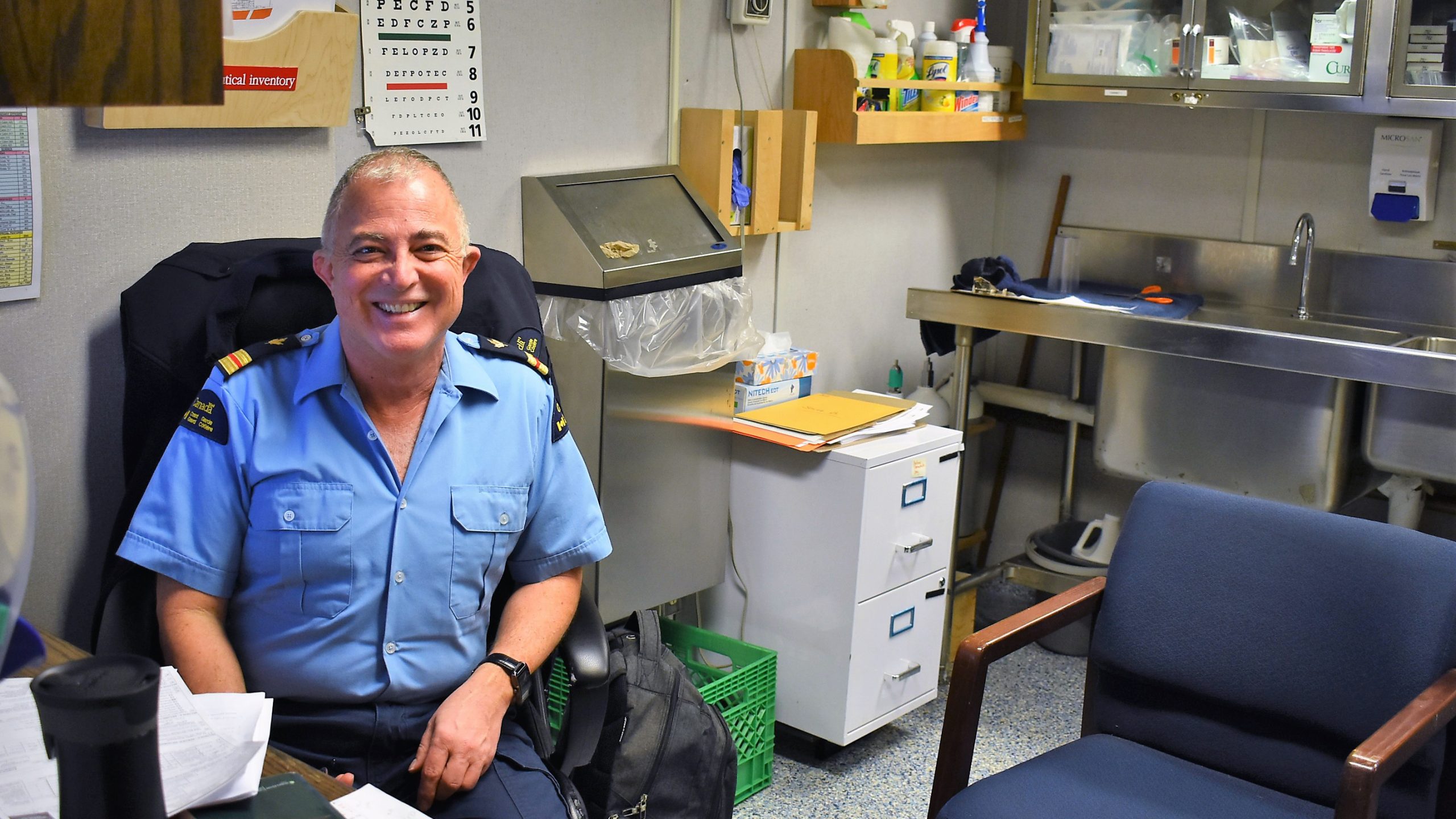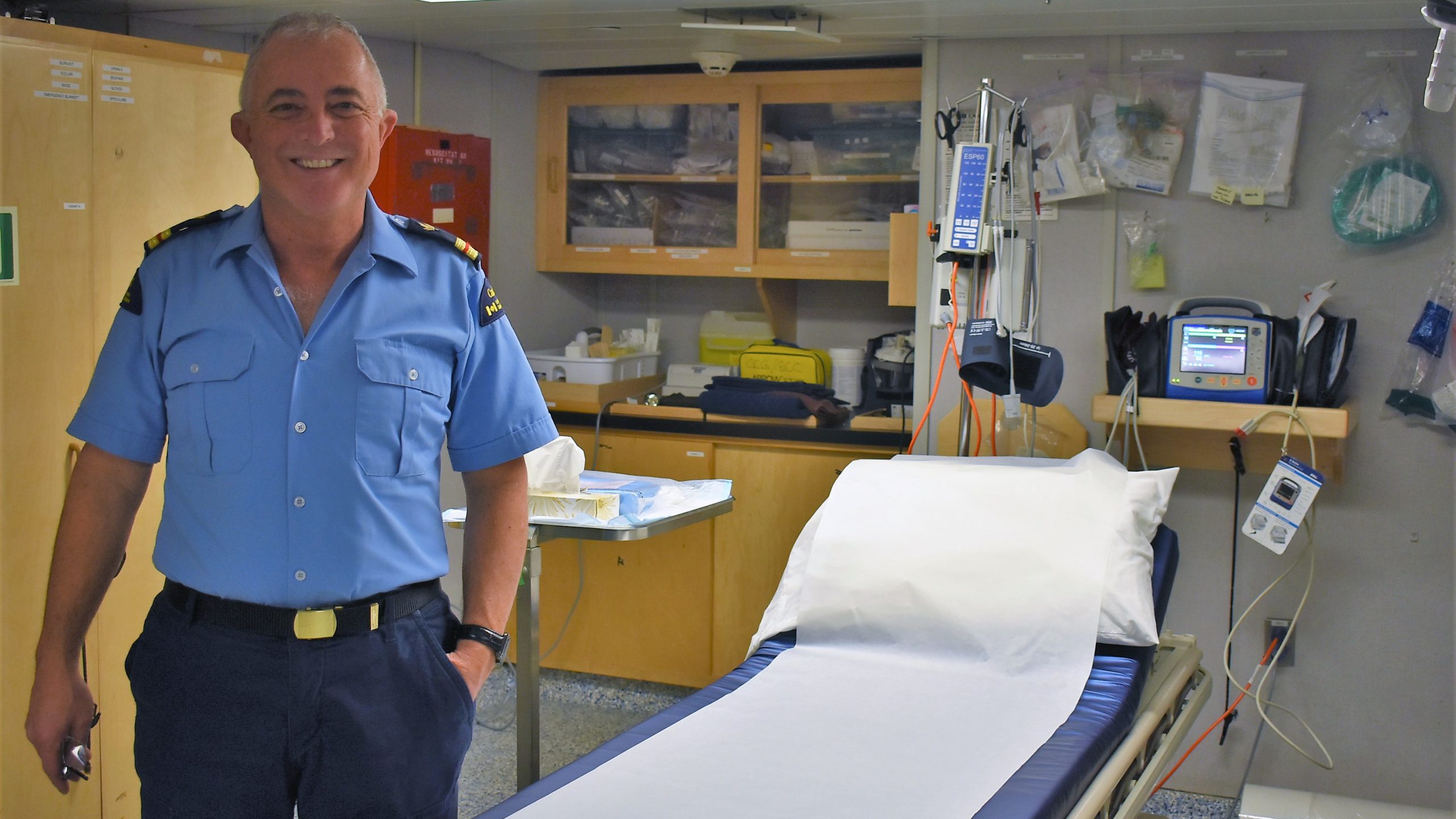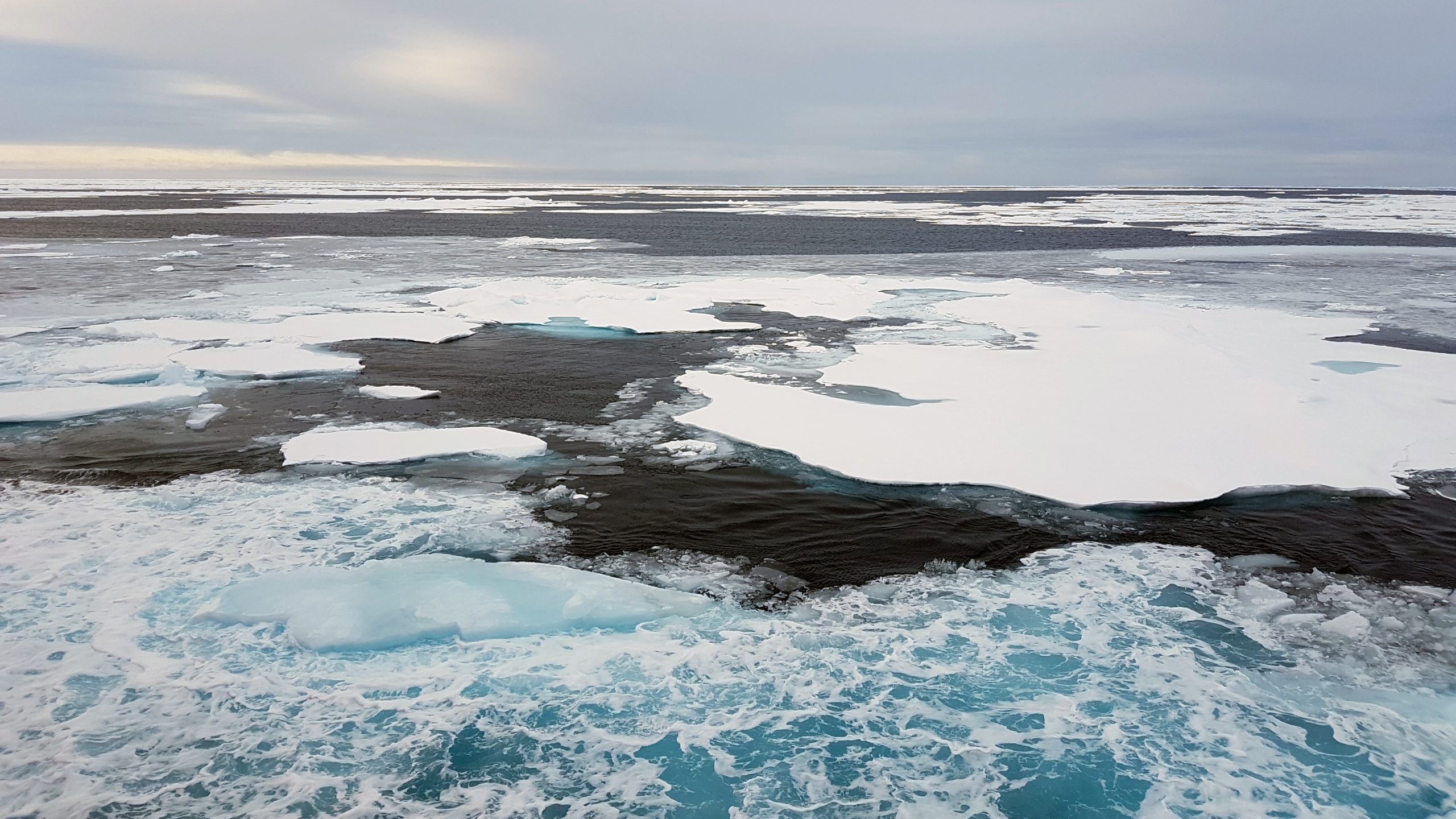Dispatch 20: From Allergy to X-ray - Medical Emergencies at Sea
Helen Gemmrich
September 11, 2021
A few years ago, I took a Wilderness First Aid (WFA) course in my hometown, Victoria, B.C. The WFA certification differs from Standard First Aid mainly in that you cannot assume an ambulance will arrive within minutes. In addition to CPR, spinal injuries, and the classic first aid techniques, we learned to build shelters and splints out of tree branches and bandages out of rain pants. The most important takeaway: you’re on your own, so be prepared for anything.
When I arrived on the Louis and saw that we had a ship’s hospital, I was curious to learn if backcountry hiking and remote Arctic voyages had much in common from a medical perspective. I sat down with Kerry Mercer, our medical officer, and he walked me through some of the considerations that come with being a floating clinic in the Arctic.
It was my WFA course taken to the extreme. All personnel are required to complete a medical examination before boarding the ship, but with a literal boatload of people operating various machinery on a moving vessel for four weeks, the list of possible injuries is exhaustive.
Tucked away between the back labs lies a room stocked with an assortment of neatly labelled medical supplies, where Kerry can treat anything from nausea and headaches to broken bones (there is an x-ray machine!) and breathing difficulties (multiple oxygen tanks are strapped to the walls). The hospital also has a bed, separate bathroom, and the ship’s only bathtub for overnight stays. Most of our work in the Arctic is incredibly remote; in an emergency, it could take days of full speed steaming for the Louis to get close enough to shore for an evacuation by helicopter. Therefore, in every operation at sea, safety is the top priority. As the coast guard’s general statement of risks explains, “It should also be noted that evacuation by helicopter where the patient is winched upwards to the helicopter in a stretcher or horse collar is a terrifying experience, especially when combined with rough sea conditions, darkness, and an already heightened apprehension of mortality on the part of the patient.”
The Louis only carries a medical officer during Arctic sailings. Usually the Rescue Specialists – typically members of the deck team who completed additional first aid training, but aren’t trained medical professionals – respond to any medical needs. On our trip, Kerry works seven days a week, in addition to offering mental health services and being on call. When the ship has internet, he can contact an online physician; otherwise, he is the only nurse around.
Whether hiking in backcountry Vancouver Island or sailing through ice floes in the Beaufort Sea, the same principle applies: you aren’t home until you’re home, and until then, anything can happen. We are lucky to have a medical officer around – although, ideally, we won’t need Kerry’s help at all!


